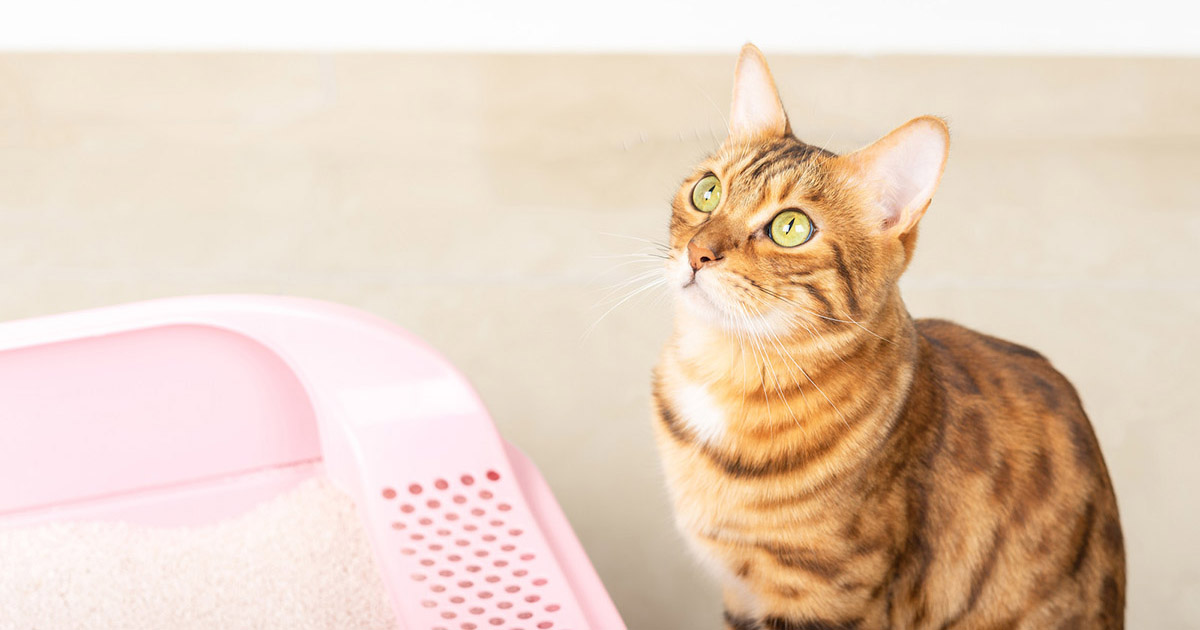Potential Issues of Flushing Cat Poop Down Your Toilet - Protect Your Plumbing
Potential Issues of Flushing Cat Poop Down Your Toilet - Protect Your Plumbing
Blog Article
What're your thoughts and feelings on How to Dispose of Cat Poop and Litter Without Plastic Bags?

Introduction
As pet cat owners, it's essential to be mindful of just how we get rid of our feline close friends' waste. While it may seem convenient to purge cat poop down the commode, this practice can have damaging repercussions for both the atmosphere and human wellness.
Alternatives to Flushing
Luckily, there are safer and more liable means to deal with pet cat poop. Consider the complying with options:
1. Scoop and Dispose in Trash
The most usual technique of getting rid of pet cat poop is to scoop it right into a naturally degradable bag and throw it in the garbage. Be sure to make use of a specialized litter inside story and dispose of the waste immediately.
2. Usage Biodegradable Litter
Opt for naturally degradable pet cat litter made from products such as corn or wheat. These litters are eco-friendly and can be securely thrown away in the trash.
3. Bury in the Yard
If you have a yard, take into consideration burying cat waste in a marked area away from vegetable gardens and water resources. Be sure to dig deep enough to stop contamination of groundwater.
4. Mount a Pet Waste Disposal System
Invest in a pet garbage disposal system especially designed for cat waste. These systems utilize enzymes to break down the waste, minimizing smell and environmental influence.
Wellness Risks
In addition to environmental problems, flushing pet cat waste can additionally pose health and wellness threats to human beings. Feline feces might contain Toxoplasma gondii, a parasite that can trigger toxoplasmosis-- a potentially serious health problem, particularly for expecting females and people with damaged immune systems.
Environmental Impact
Flushing feline poop introduces unsafe pathogens and parasites into the water supply, posturing a substantial danger to marine ecological communities. These contaminants can negatively impact marine life and compromise water high quality.
Conclusion
Responsible animal ownership extends beyond supplying food and shelter-- it likewise includes proper waste administration. By avoiding purging feline poop down the toilet and selecting alternative disposal approaches, we can decrease our environmental impact and protect human wellness.
Why You Should Never Flush Cat Poop Down the Toilet
A rose by any other name might smell as sweet, but not all poop is created equal. Toilets, and our sewage systems, are designed for human excrement, not animal waste. It might seem like it couldn’t hurt to toss cat feces into the loo, but it’s not a good idea to flush cat poop in the toilet.
First and foremost, assuming your cat uses a litter box, any waste is going to have litter on it. And even the smallest amount of litter can wreak havoc on plumbing.
Over time, small amounts build up, filling up your septic system. Most litter sold today is clumping; it is made from a type of clay that hardens when it gets wet. Ever tried to scrape old clumps from the bottom of a litter box? You know just how cement-hard it can get!
Now imagine just a small clump of that stuck in your pipes. A simple de-clogger like Drano isn’t going to cut it. And that means it’s going to cost you big time to fix it.
Parasitic Contamination
Believe it or not, your healthy kitty may be harboring a nasty parasite. Only cats excrete Toxoplasma in their feces. Yet it rarely causes serious health issues in the cats that are infected. Most people will be fine too if infected. Only pregnant women and people with compromised immune systems are at risk. (If you’ve ever heard how women who are expecting are excused from litter cleaning duty, Toxoplasma is why.)
But other animals may have a problem if infected with the parasite. And human water treatment systems aren’t designed to handle it. As a result, the systems don’t remove the parasite before discharging wastewater into local waterways. Fish, shellfish, and other marine life — otters in particular — are susceptible to toxoplasma. If exposed, most will end up with brain damage and many will die.
Depending on the species of fish, they may end up on someone’s fish hook and, ultimately on someone’s dinner plate. If that someone has a chronic illness, they’re at risk.
Skip the Toilet Training
We know there are folks out there who like to toilet train their cats. And we give them props, it takes a lot of work. But thanks to the toxoplasma, it’s not a good idea.

I came across that piece of writing on How to Dispose of Cat Poop and Litter Without Plastic Bags while doing research the search engines. Remember to set aside a second to share this article if you appreciated it. We value reading our article about Can You Flush Cat Poo or Litter Down the Toilet?.
Call Us Now Report this page